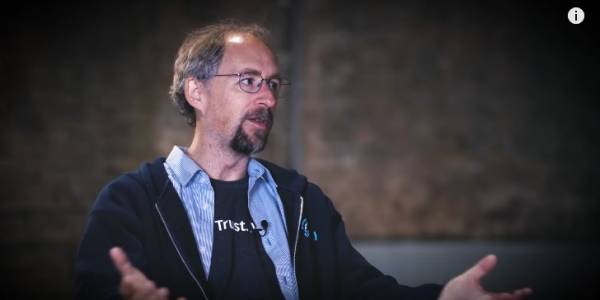Behind Adam Back and Blockstream’s Attempts to Constrain Bitcoin
Steven Stradbrooke of CoinGeek.com writes that Blockstream CEO Adam Back has engaged in ongoing "efforts to strangle Bitcoin in its cradle", citing Blockstream's "financial incentive to artificially constrain Bitcoin’s capacity to handle transactions. Stradbrooke notes that "otherwise there would be no need for Blockstream’s proprietary off-ramps".
Back invented Hashcash, which is used in the Bitcoin mining process.
Stradbrooke observes:
It quickly became clear that Back’s initial enthusiasm for 8Mb blocks was simply a ruse to buy time while the Core camp maneuvered to outflank its large-block rivals. This duplicity was to become a pattern in Back’s dealings with the Bitcoin community in the years to come.
In February 2016, Back and five Core developers gathered in a Hong Kong hotel with a group of Chinese miners representing a significant chunk of Bitcoin’s hash power. After a contentious discussion that stretched into the wee hours, a deal was struck in which the miners agreed they would “only run Bitcoin Core-compatible consensus systems … for the foreseeable future.”
In exchange, Core agreed that the block size would be raised to 2Mb, plus whatever additional gains could be derived from incorporating Blockstream’s new Segregated Witness (SegWit) software. SegWit worked by stripping the signature data from Bitcoin transactions and replacing them with hashes of signature data, theoretically expanding the number of transactions one could stuff into a block.
But within months of this deal, Blockstream reneged on the original order of changes, and a shift in the narrative indicated that there would be no block size increase and that any gains would be achieved by SegWit alone. Miners felt betrayed, leading to a second agreement in New York in May 2017 that emphatically stated the protocol would continue with both SegWit and a doubling of the current 1Mb block size.
Stradbrooke describes Blockstream as a future Bitcoin version of Walmart, "a vertically-integrated custodian that will continue to publicly sing decentralization’s praises even as it consolidates ever greater power in its own hands."
He concludes: "Adam Back wanted to be seen as Bitcoin’s progenitor. Instead, he will go down in history as one of the chief architects of its demise."
- Aaron Goldstein, Gambling911.com














